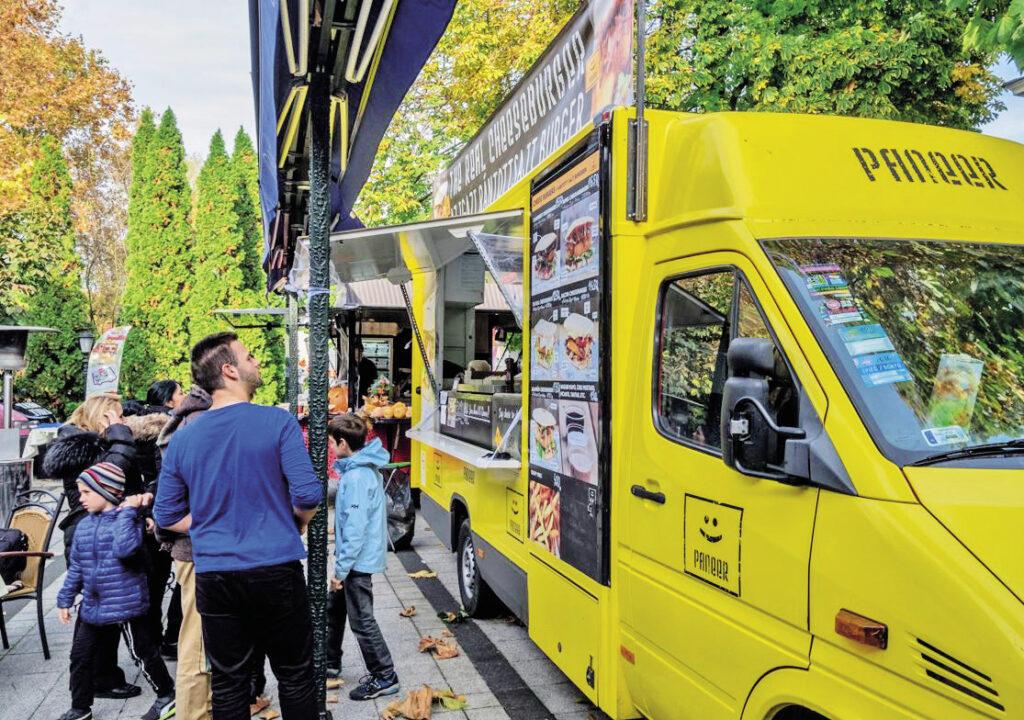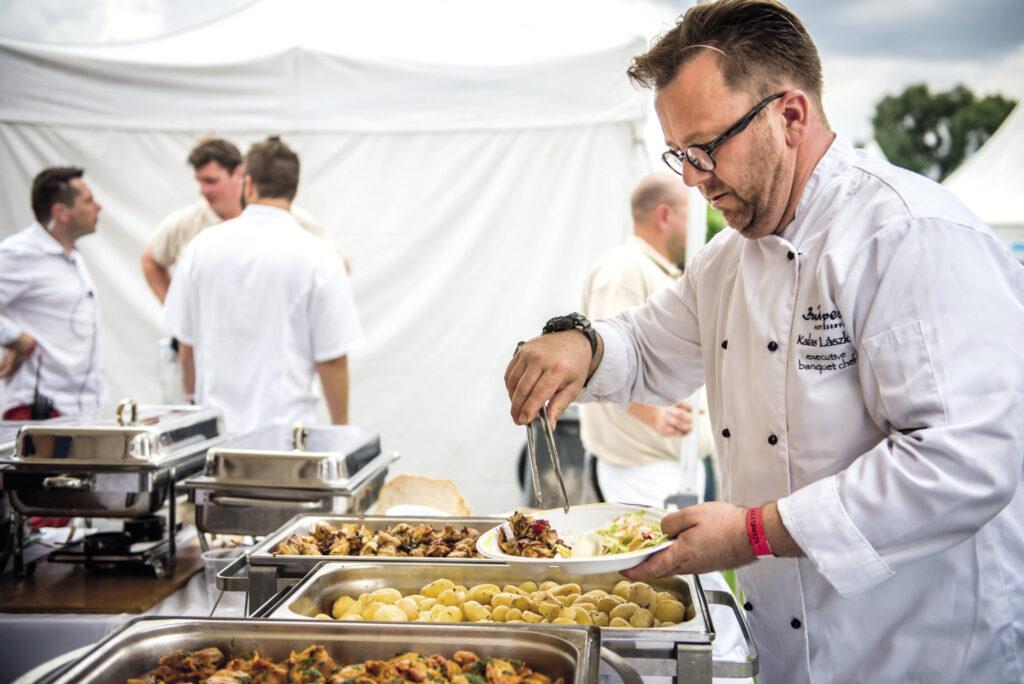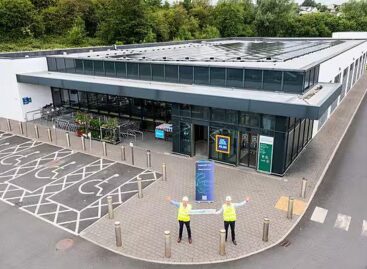It is festival time!
There aren’t many countries in the world, where there are more festivals per person than in Hungary: every year we celebrate something several thousand (!) times, so we can say that festivals have become part of the Hungarian way of life. Feasts, traditions, culture, food and drinks – all of them offer so many experiences, and the big festivals are also important from a tourism perspective. Many large food and drink companies and retailers treat their presence at these events as a core element of their brand strategies.

Major manufacturers and retailers used to consider presence at festivals as part of their marketing strategies
The significance of festivals kept growing with the development of mass tourism, and some of them are organised with the very purpose of boosting tourism. Their target group is open, active and ready-to-spend consumers, who are actually spending much more on travelling, accommodation and tickets than at the festival itself. At the festival visitors eat and drink, even if we aren’t talking about a culinary festival, and typically they can choose from a selection of different street foods.

Festivals’ target groups consist of interested and active consumers who are also willing to spend money
Street and festival food
In the last few years street food was one of the most popular and definitely the fastest growing culinary categories. Street food perfectly suits today’s rapid pace of life. By 2023 street food has become part of the offering of restaurants, diners, catering companies and from time to time mass catering service providers, too. Estimation is that 2.5 billion people eat street food globally on a daily basis. The centre of the movement is Bangkok, where 20,000 street food vendors serve the city’s 8 million population. In Hungary several famous chefs have tried their hands at street food; and of course there are those who don’t have the necessary capital for opening a restaurant, and decide to start a street food joint – even if these are a worse choice from a taxation perspective than traditional eateries.
What is modern street food like?
Street food is a mobile platform for offering one or just a few kinds of food. Usually the successful street food joints only have a short menu, cooking from carefully selected ingredients to guarantee high quality. In most cases street food places sell artisanal food and drinks. Hamburger is one of the most typical street foods, and usually the majority of street foods could be integrated into basically any kind of culinary concept. Plus street foods can be easily adapted to the changing trends, and they are prepared from a thousand different ingredients.
Today’s street food is characterised by the use of brave flavours, but convenience is also trendy. Ideally street food can be eaten on the go, and it perfectly fits into the trend of snacking throughout the day. Generation Y and Z consumers are the natural target group of street foods: they like snacking and experimenting with new flavours. They are thinking globally, they have been watching cooking shows on television since their childhood, they are wandering around the world via bloggers and social media, and they aren’t afraid to try new dishes.
Food truck
Usually it is food trucks that take modern street foods to festivals. Those who are in this business say operating a food truck is a lifestyle, so there are many new entries and at the same time a lot of chefs realise this job isn’t for them. Food truck customers tend to be really loyal. Chefs cooking in food trucks use ingredients very creatively. Sometimes they have a big influence on the culinary taste of city dwellers.

Food trucks use raw materials in expressly creative ways
Unfortunately in the bigger Hungarian cities the municipalities make the random appearance of food trucks difficult on weekdays, especially in the city centre. This is one of the reasons why most food truck operators concentrate on festivals and other major events, while others try to use the parking lots of large office buildings to serve nearby workers at lunchtime. More and more often they show up at private parties and weddings, and they are also becoming the competitors of catering companies at corporate events. //
Environmental consciousness as an added value

György Spiegel
marketing director
Borsodi Breweries
Fifty-year-old Borsodi will be there at two big summer festivals in 2023, the Youth Days of Szeged (SZIN) and Strand Festival. It is important for us to bring not only out best beers and quality service to these events, but also to do this in an environmentally friendly fashion. This is why festival-goers can buy our beers in paper or recycled cups. //
Inclusion and diversity

Péter Mondovics
area marketing manager
Mastercard
This year we will work with three big partners in musical programmes: Budapest Park that offers a wide range of different concerts and music events, La Boum festival and KEMP creative camp that support up-and-coming artists, and Budapest Essentials Delicate Session that promotes iconic Budapest locations with the help of special musical experiences. Our activities will focus on inclusion and diversity for equal opportunities, environmental sustainability, and the importance of women’s roles. //
Wine and then beer!

Márk Maczelka
head of communications
SPAR Magyarország
SPAR has been the sponsor of the SPAR Budapest Marathon® Festival since 2008. Besides being there at the Budapest Wine Festival for quite some time, from 2022 we are also supporting the Inner City Beer Festival. It is very important for SPAR to back programmes that have some kind of charity element too. Environmental sustainability is a core value for SPAR in its operations. We make sure to work with eco-friendly solutions for our festival presences, for instance we are using recycled packaging material and cutlery. //
On an upward trajectory again
Rudolf Semsei, head of the Event Gastronomy department at the Federation of Hungarian Event Organisers and Suppliers (MaReSz) told our magazine: Hungarian restaurants and event catering both performed better than expected last year. After the shock of surging energy and ingredient prices last autumn, the situation improved by the end of the year. Companies realised that the marketing value of business events stays the same in recession years too, so restaurants and catering service providers consciously building their customer base could close a high-turnover 4th quarter in 2022. Ethical catering has become important: in order to waste less food, it should be acceptable if there is no more left from certain dishes by the end of a programme.

Companies have recognised soon that the marketing value of business events remains unchanged in years of crises, too
//
Responsibly

Dávid Gábor Kovács
marketing director
Zwack
After last year’s successful partnerships, Tanqueray will be the gin partner of Sziget Festival once again, with Sziget Beach by Tanqueray as an exclusive brand location. It is needless to say that our brands will be there at other festivals too. It is a priority for us to promote responsible alcohol consumption, so we have teamed up with Sziget and use the Diageo DRINKiQ programme to raise awareness of this important topic. //
Target groups in focus
ALDI opened its first pop-up store at Sziget Festival in 2016. Since then the shop has been a regular presence at the biggest Hungarian music festivals. ALDI is preparing for this year’s Sziget with a pop-up store and it will set up a Grill Zone at Balaton Sound, Gyereksziget and SZIN. These Grill Zones offer a food selection tailored to the needs of festival-goers, plus long opening hours. 100% of the waste is collected selectively in both the pop-up store and the Grill Zones. //
Waste management in focus

András Palkó
marketing director
Coca-Cola HBC
Magyarország
At festivals we wish to reach the young audiences especially the members of generation Z. In addition to being there with our products, we also wish to offer experiences at festivals, so in most cases we are bringing our own venue and programme. We are committed to collect and recycle 100% of the waste our packaging generates by 2030. Working with our partners, we are trying to manage the plastic waste at festivals as efficiently as possible. //
This article is available for reading in Trade magazin 2023/4.
Related news
Aldi Ireland Announces €5m Investment In Green Energy Solutions
Aldi Ireland has announced a €5 million investment in green,…
Read more >Change in Zwack management: Csaba Belovai is the new CEO of Zwack Unicum Plc.
According to the decision of the owners of Zwack Unicum…
Read more >New Product Launches In Spain Hit New Low, Study Finds
Innovation in Spain’s FMCG sector is at a record low,…
Read more >Related news
Corporate leaders’ commitment to sustainability at record level
According to the latest data from the K&H Sustainability Index,…
Read more >FAO food price index rose slightly in June due to higher prices of meat, dairy products and vegetable oils
The Food and Agriculture Organization of the United Nations (FAO)…
Read more >What can cause the price of a wine to increase tenfold?
There are fewer of them worldwide than the number of…
Read more >






